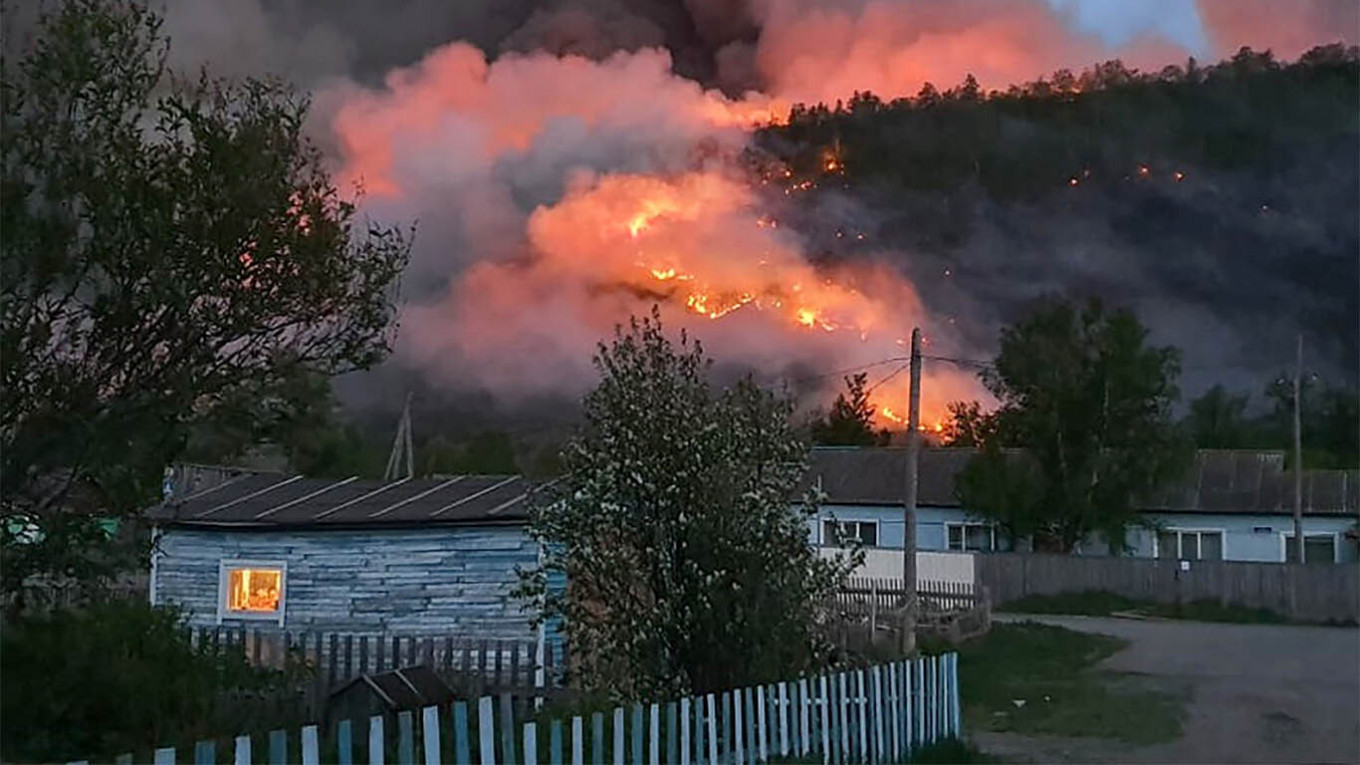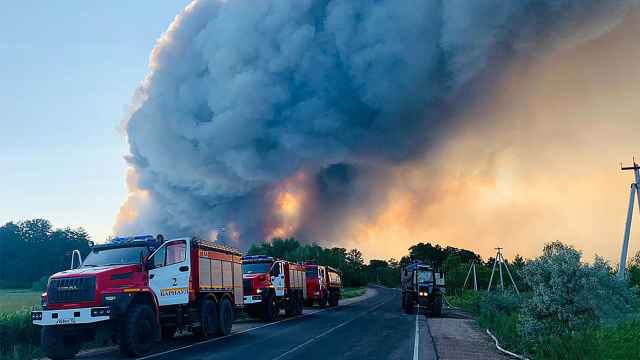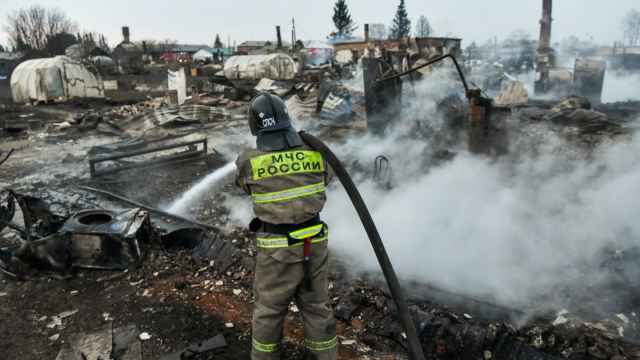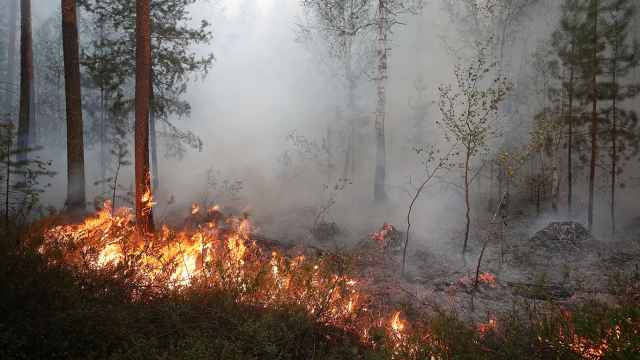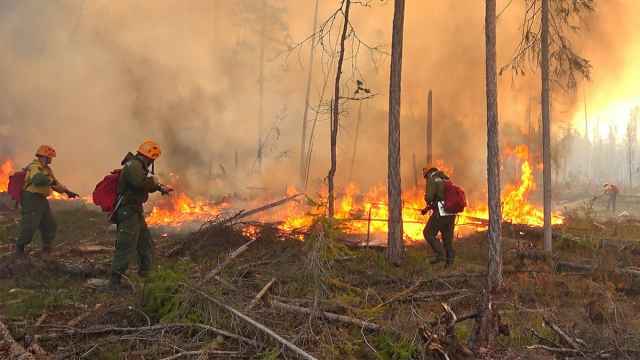Smoke from raging forest fires in Siberia was filling cities Thursday as officials scrambled to prevent the flames from reaching homes.
More than 100 firefighters and volunteers were trying to douse the flames of a fire outside the city of Yugorsk in the Khanty-Mansi Autonomous District, just one of several areas affected.
"A fire line has been plowed around it, so the fire is not a threat, but when the wind turns, the smoke goes into the city," the chief of Yugorsk administration's emergencies department, Alexei Maksimenyuk, told AFP.
Photos of Yugorsk and other cities showed residential buildings fuzzy under a blanket of white smog.
Yakutsk, a city of more than 300,000, has been seriously affected, according to images shot by local cameraman Ivan Semyonov, who posted them on Instagram Wednesday.
"Every year this problem gets worse," he wrote on his account. "Will this issue be resolved in the coming years?"
The Yakutia region's environment ministry said Wednesday that the smoke is from large wildfires raging in remote areas, while the health watchdog told residents to stay indoors and refrain from physical exercise.
A heatwave caused by changing climate in northern Siberia has contributed to the severity of fires this year, but environmentalists also point the finger at poor forest management and lack of funding for fire prevention.
Russia's aerial forest protection service, the agency that specializes in forest fires, said Wednesday that more than 5,000 people are working on 197 fires across Russia in an area of over 40,000 hectares, including eight in nature reserves.
However the biggest wildfires, over an area of 382,436 hectares, are not attended to under the policy in Russia that allows remote wilderness to be only "monitored" from space.
The policy was subject to major criticism last summer, when smoke enveloped some of Siberia's largest cities, and over 1.2 million people signed a petition demanding the crisis be dealt with.
A Message from The Moscow Times:
Dear readers,
We are facing unprecedented challenges. Russia's Prosecutor General's Office has designated The Moscow Times as an "undesirable" organization, criminalizing our work and putting our staff at risk of prosecution. This follows our earlier unjust labeling as a "foreign agent."
These actions are direct attempts to silence independent journalism in Russia. The authorities claim our work "discredits the decisions of the Russian leadership." We see things differently: we strive to provide accurate, unbiased reporting on Russia.
We, the journalists of The Moscow Times, refuse to be silenced. But to continue our work, we need your help.
Your support, no matter how small, makes a world of difference. If you can, please support us monthly starting from just $2. It's quick to set up, and every contribution makes a significant impact.
By supporting The Moscow Times, you're defending open, independent journalism in the face of repression. Thank you for standing with us.
Remind me later.


